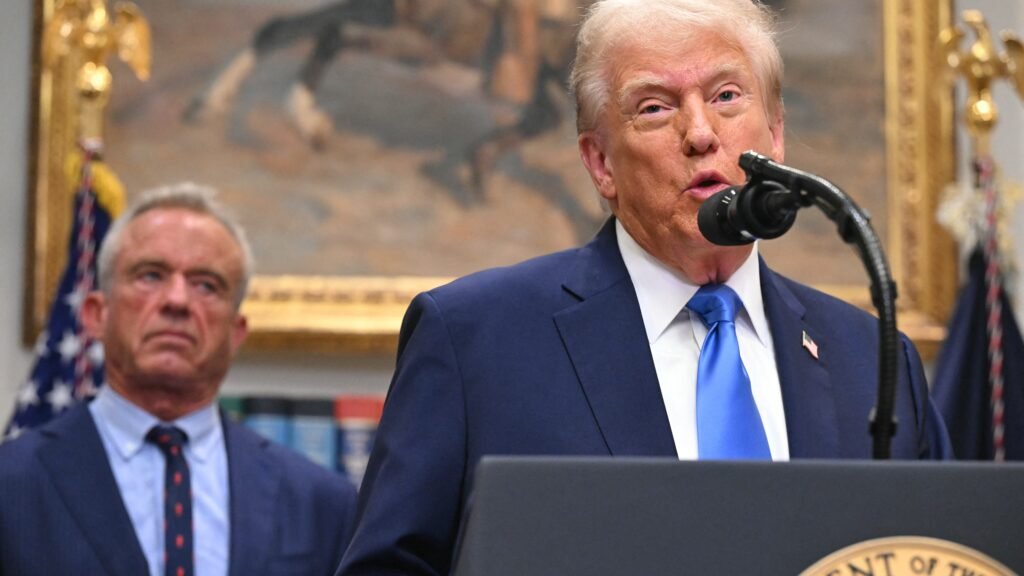President Trump recently made controversial remarks regarding childhood vaccines during a White House event focused on the rise of autism cases among children. The president, without providing evidence, suggested that many vaccines are unsafe as currently administered and proposed significant changes to the vaccination schedule. Trump claimed to have discussed these changes with health secretary Robert F. Kennedy Jr., who has a history of promoting anti-vaccine views.
The proposed changes by Trump included spreading out vaccine doses over several years, splitting the measles, mumps, and rubella vaccine into separate shots, delaying the hepatitis B vaccine until age 12, and removing aluminum and mercury from vaccines. However, experts have raised concerns about the potential consequences of these changes, warning that they could leave children vulnerable to preventable diseases and undermine the effectiveness of vaccines.
Health experts, including the Centers for Disease Control and Prevention and major medical groups, emphasize the importance of adhering to the recommended vaccine schedule to ensure maximum protection against infectious diseases. Trump’s suggestions to deviate from the established guidelines could pose serious risks to public health.
Despite Trump’s personal feelings of skepticism towards vaccines, the scientific community has repeatedly debunked claims of a link between vaccines and autism. The American Psychiatric Association reaffirmed that vaccines do not cause autism and stressed the importance of evidence-based recommendations.
During the press conference, Trump also made unsubstantiated claims about the safety and efficacy of vaccines, comparing them to large doses of medications given to horses. He expressed concerns about the measles, mumps, and rubella vaccine, despite its proven effectiveness in saving lives.
While Trump emphasized that he is not a doctor, he insisted on sharing his opinions on vaccines and urged for swift implementation of the proposed changes. However, health officials and experts caution against deviating from established vaccine schedules, emphasizing the importance of evidence-based practices in protecting public health.
In conclusion, President Trump’s comments on childhood vaccines have sparked controversy and raised concerns among health experts. It is crucial to prioritize evidence-based recommendations and established guidelines to safeguard public health and protect children from preventable diseases.


